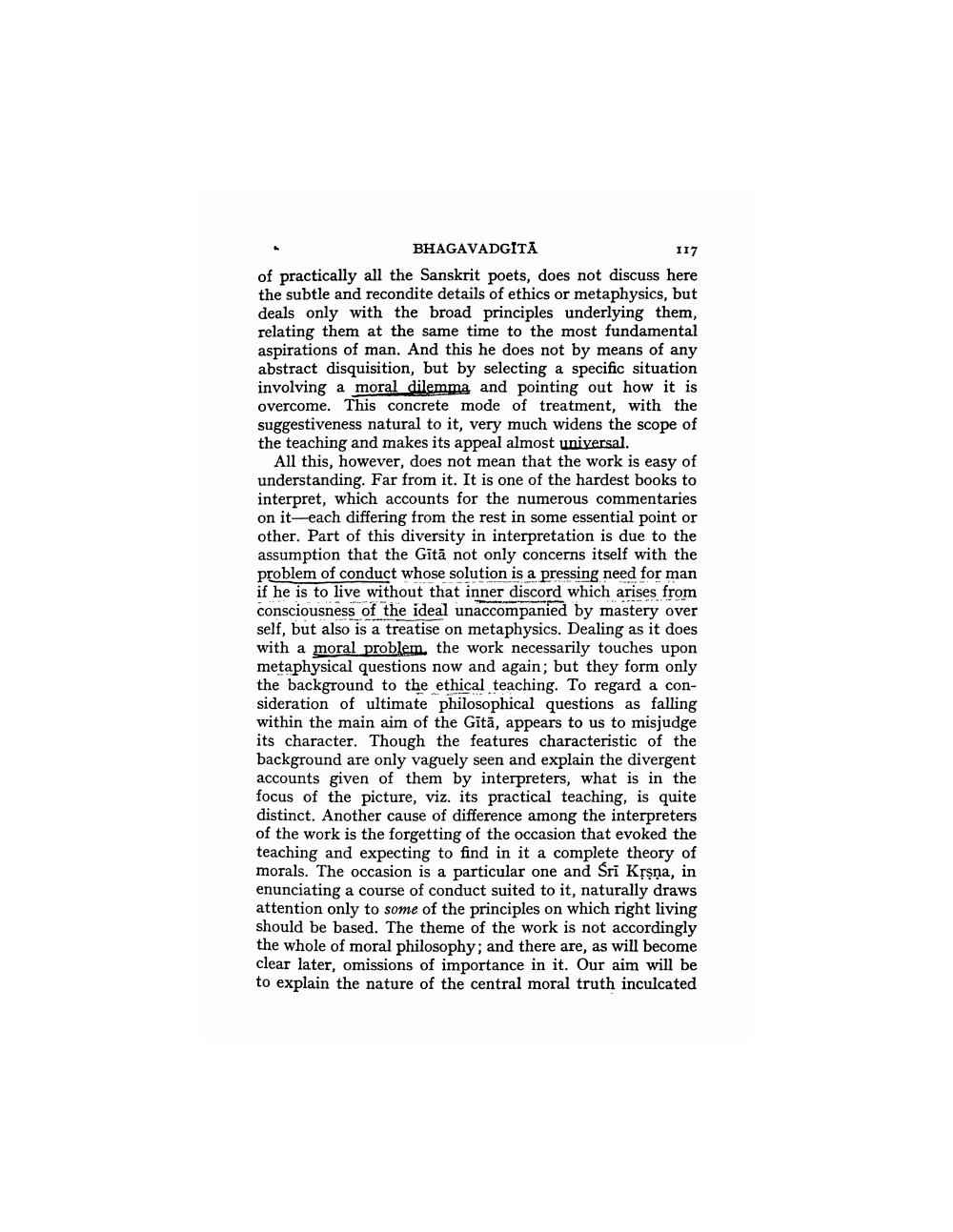________________
BHAGAVADGITA
117 of practically all the Sanskrit poets, does not discuss here the subtle and recondite details of ethics or metaphysics, but deals only with the broad principles underlying them, relating them at the same time to the most fundamental aspirations of man. And this he does not by means of any abstract disquisition, but by selecting a specific situation involving a moral dilemma and pointing out how it is overcome. This concrete mode of treatment, with the suggestiveness natural to it, very much widens the scope of the teaching and makes its appeal almost universal.
All this, however, does not mean that the work is easy of understanding. Far from it. It is one of the hardest books to interpret, which accounts for the numerous commentaries on it-each differing from the rest in some essential point or other. Part of this diversity in interpretation is due to the assumption that the Gītā not only concerns itself with the problem of conduct whose solution is a pressing need for man if he is to live without that inner discord which arises from consciousness of the ideal unaccompanied by mastery over self, but also is a treatise on metaphysics. Dealing as it does with a moral problem. the work necessarily touches upon metaphysical questions now and again; but they form only the background to the ethical teaching. To regard a consideration of ultimate philosophical questions as falling within the main aim of the Gītā, appears to us to misjudge its character. Though the features characteristic of the background are only vaguely seen and explain the divergent accounts given of them by interpreters, what is in the focus of the picture, viz. its practical teaching, is quite distinct. Another cause of difference among the interpreters of the work is the forgetting of the occasion that evoked the teaching and expecting to find in it a complete theory of morals. The occasion is a particular one and Sri Krsna, in enunciating a course of conduct suited to it, naturally draws attention only to some of the principles on which right living should be based. The theme of the work is not accordingly the whole of moral philosophy; and there are, as will become clear later, omissions of importance in it. Our aim will be to explain the nature of the central moral truth inculcated




